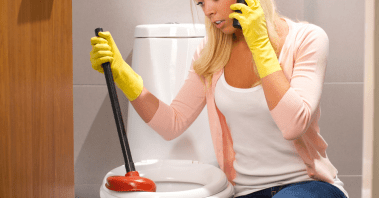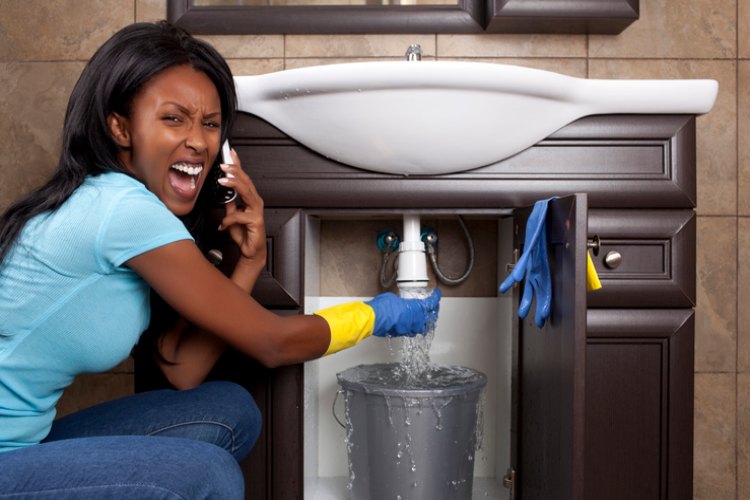Addressing Emergency Plumbing Problems: Fast Fixes Until Professional Help Arrives
Addressing Emergency Plumbing Problems: Fast Fixes Until Professional Help Arrives
Blog Article
In this article down the page you will discover lots of excellent expertise pertaining to Expert Tips for Managing a Plumbing Emergency Until Help Arrives.

Plumbing emergency situations can strike any time, triggering stress and prospective damages to your home. Whether it's a burst pipeline, a blocked drainpipe, or a dripping faucet, recognizing exactly how to take care of the scenario up until a specialist plumbing technician arrives can conserve you from further difficulties. This short article gives vital emergency plumbing pointers to assist you minimize damage and reclaim control during a pipes crisis.
Shut off the Water Supply
The primary step in any plumbing emergency situation is to shut off the water system. For local problems, such as a dripping faucet or bathroom, shut off the valve near the component. In the case of a significant leak or ruptured pipeline, find your home's major water shut-off valve and transform it off right away. Recognizing the place of these shutoffs ahead of time can save useful time throughout an emergency.
Shut down Your Water Heater
In specific emergencies, such as a burst pipeline, it's important to shut off your hot water heater. This protects against overheating or damages to the unit when water stops moving. Turn off the power supply to the hot water heater (electric or gas) and let it cool down to prevent potential dangers.
Temporarily Quit a Burst Pipeline
A ruptured pipe can bring about considerable water damages in minutes. To alleviate the issue:
Call a specialist plumbing quickly to resolve the problem permanently.
Have an Emergency Situation Plumbing Set
Prepare a standard pipes emergency set to take care of minor problems properly. Your kit ought to consist of:
Having these tools handy can make a substantial difference in your capability to handle emergency situations.
Unclog Drains Pipes Safely.
A blocked drainpipe can be an irritating and unpleasant concern. Here's how to tackle it:.
If these techniques do not work, prevent utilizing extreme force, as it might worsen the clog.
Take Care Of Overflowing Toilets.
An overruning commode can create prompt disorder. Below's what you must do:.
Address Tiny Leakages with Momentary Repairs.
Small leakages can swiftly come to be substantial issues if left unchecked. Make use of these short-term fixes up until professional aid shows up:.
While these solutions aren't long-term, they can assist decrease water loss and damage.
Deal With Frozen Piping Thoroughly.
In colder environments, icy pipelines are a common emergency situation. If you think an icy pipeline:.
Know When to Call a Professional.
While quick fixes can help briefly, certain plumbing concerns need prompt professional focus. Call a plumber if:.
Immediately calling a professional ensures the problem is settled properly and protects against further issues.
Protect against Further Damages.
Taking quick action to decrease damages can conserve you time and money in the long run. Here's just how:.
Final thought.
Plumbing emergency situations can be frustrating, but with the right expertise and tools, you can manage the scenario properly until aid gets here. By shutting off the water system, addressing little leaks, and making use of short-lived solutions, you can minimize damages and keep your home safe. Keep in mind, these pointers are short-term remedies; always consult an accredited plumber to deal with the origin of the problem. Preparation and fast thinking are your finest allies in any plumbing emergency situation.
8 Helpful Tips for Managing Plumbing Emergencies at Home
If your plumbing system hasn’t failed once, wait for it because almost everyone has a story to tell. Sometimes, it could be simple emergencies such as a leaking pipe, a blocked cistern, or even a big burst pipe. In situations like this, you need to have some handy tips to save you some money and from possible damages.
Take care of minor issues early.
Sometimes, you could have avoided an emergency by taking proactive measures while it was still early. Some major plumbing emergencies can be a result of an ignored minor issue. We recommend that you have items like plumbing tapes and other related items. A plumbing tape can allow you to manage minor leaks before the plumber arrives.
Cut off the water supply.
This tip is essential in almost any type of leakage problem. For problems like minor leakages in the toilet or kitchen, turn off the supply that takes water to the affected pipes. If the leakage is a major pipe, you must shut off the supply valve to the entire building. This will help you avoid flooding your home and neighbors if you share a flat.
Know your plumbing system
Folks typically move into a new apartment without understanding the water supply around the building. This can prove disastrous if a water emergency arises and the plumber is far away. The previous tip will prove useless if you don’t practice this one. More importantly, know where your water shut-off valve is located – you’ll need that knowledge to prevent potential home floods.
Have some common handy tools
There are lots of plumbing emergencies that you can handle without hiring a plumber. That’s why you must keep some tools available always. Some tools that you can use to fix simple plumbing emergencies easily include plumbing tapes, screwdrivers, thread seal tapes, plungers, pliers, tape measures, and rubber gloves.
Insulate your pipes from cold
You’ll save yourself from many plumbing expenses if you protect your water pipes from the cold. This is because of the harmful effects that cold weather can have on your pipes. During winter, your pipes can burst from being overly expected to freezing temperatures. So, make sure insulators are there to keep the pipes working correctly.
Avoid practices that will clog your toilet.
Many people indulge in practices that can damage the plumbing system of the entire building. One of these is when they use their toilet to dispose-off garbage. They flush all kinds of things, such as paper towels, bandages, hairs, female sanitary products, etc., down the toilet. This will block your toilet in the long run, incurring unnecessary expenditures. Dump such waste in the trash instead.
Check your dials regularly.
Sometimes, there could be leakages in your home without noticing them in time. So, constantly monitor your water meter dial. If the dial is reading when there is nobody using water, this is an indicator that there is leaking. Check for leaks immediately. Call a plumber as soon as possible if you can’t find any.
https://www.constructionplacements.com/8-helpful-tips-for-managing-plumbing-emergencies-at-home/

As a reader on What to Do During a Plumbing Emergency, I thought sharing that chunk was a good thing. Do you know about somebody who is fascinated with the niche? Do not hesitate to promote it. Bless you for being here. Revisit us soon.
Call Today Report this page